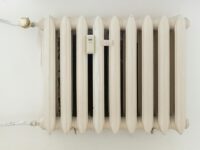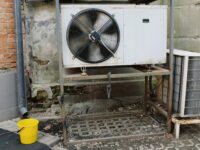The following contribution is from another author.
A heating and cooling system or HVAC is a necessity for all homes. The system works to maintain the right environment by keeping your home warm or cool during the shifting seasons. However, with your continued use of the system, the air conditioning or heating unit endures significant strain, eventually leading to a breakdown. The ideal way to prevent issues from developing is to perform regular maintenance and fix any potential problems along the way.
You don’t want to deal with the early replacement of your HVAC system’s components due to the costs involved. It’s crucial to perform routine maintenance to avoid costly repairs. The heating and cooling system in your home requires proper care and maintenance to function optimally and prolong its lifespan.
A functional HVAC system can keep your home comfortable for years to come. There are professionals who can provide you with reliable maintenance and repair services for Fairfax heating and cooling systems. A quick look at dmselectservices.com/fairfax-station-va-hvac-repair/ can help you learn more about one of these HVAC maintenance and repair companies.
For now, take a look at these maintenance tips to keep your heating and cooling system in good shape found below:
Pay Close Attention To Your HVAC System
You must closely monitor any unusual sounds with your system, such as thumping, rattling, grinding, or buzzing noises. These sounds may indicate an issue in the HVAC system. Any performance issues such as weak airflow, insufficient heating or cooling, thermostat issues, or puddles forming around the indoor unit also require attention from a professional. The earlier you fix the problem, the less damage it can cause.
Schedule Yearly Maintenance
Heating and cooling systems require regular maintenance. Don’t forget to tune your air conditioners every spring and heaters during fall. Regular care plays an essential role in preventing problems along the way. Your system will operate at total capacity to ensure maximum comfort while cutting down on energy costs and prolonging the lifespan.
Replace The Air Filters
The air filters require replacement every month or every six weeks. You also need to do monthly inspections to avoid any dirt buildup or blockages. The more people who reside in your home and the more pets you have, the more often you need to replace the filters. If it’s allergy season, consider replacing the filters more often to minimize any respiratory issues.
You must prioritize this as a monthly task since an HVAC system with dirty or blocked filters can cause damages in the long run.
Clean The Vents
Use a vacuum to clean the heating and cooling system’s vents. Remember that accumulated dust, dirt, and debris will disrupt the airflow. Check the airflow regularly to ensure that it’s not weak.
Clean The Outside Unit
Some homeowners tend to overlook the unit of their HVAC system found outside the house. However, it’s just as essential as the indoor unit and requires regular care, especially since it’s exposed to the elements outdoors. Inspect your outdoor unit and make sure to remove any branches, twigs, leaves, or debris. Try cutting back plants and shrubs away from the unit, ideally providing it with at least two to three feet of clearance. Watch out if you have trees or bushes that generate large amounts of pollen that can clog up the unit.
Carefully wipe the unit to eliminate dirt, making sure to clean its interior as well. If necessary, wash it off gently using a garden hose. Avoid utilizing a pressure washer since it can cause permanent damage to your unit.
Schedule An Inspection Of The Ductwork
When you have ductwork, it’s essential to have a professional inspect it every several years for any blockages. It’s important to note that debris can accumulate in the air ducts over time, which can impede airflow. Once this occurs, it can strain the equipment and eventually weaken the system.
Inspect The Evaporator Coil Drainpipe And Drain Pan
If you’re uncertain of the drainpipe’s location, ask a professional to show you where to find it. Check the drainpipe and remove any blockages due to mold or algae. You can use a wet-dry vacuum to suction out any clogged-up areas.
Conclusion
The cost of replacing HVAC systems involves not just money but also significant discomfort to the homeowner. Aside from your HVAC system’s age, most repairs are due to poor maintenance of the unit. If you want the heating and cooling system in your home to stay in top shape and ensure superior comfort for many years to come, you should carefully follow these simple tips.
















